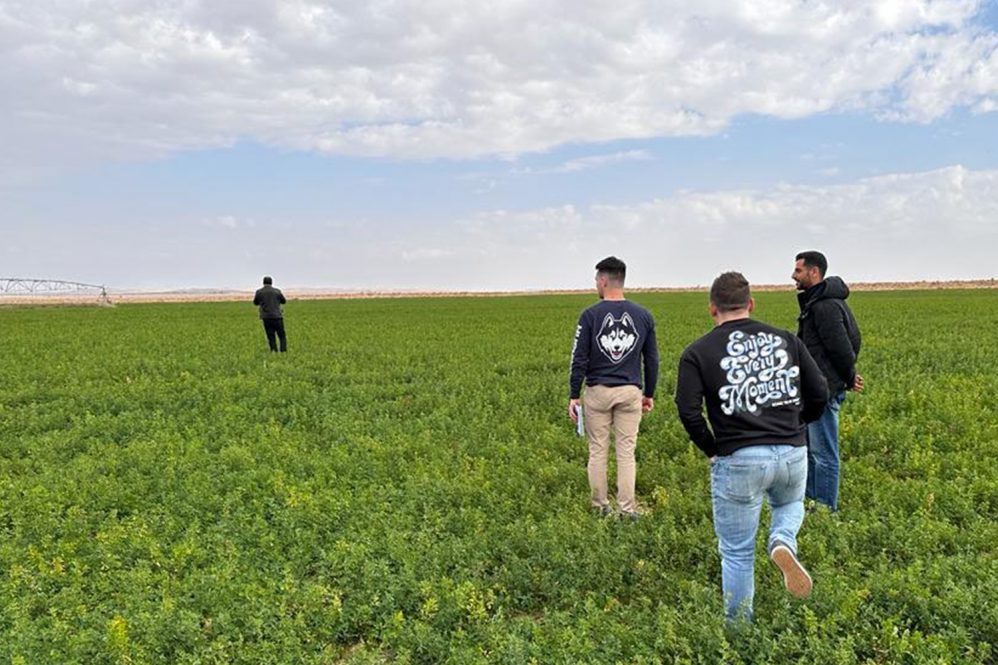On a blue-sky day in the northern region of Jordan, Peter Goggins ’21 (CAHNR) ’23 MEGE, striding through a sprawling field of alfalfa, was reminded of just how much he loves agriculture.
In a navy-blue shirt with the ubiquitous UConn Husky logo emblazoned on the back, Goggins traversed that inspiring alfalfa field as part of a 10-day trip to the Middle Eastern country in January, where he toured farms and aquaculture facilities, met the farmers who operate them, visited agricultural research facilities and import warehouses, and even lunched with a sheik.
“In the U.S., agriculture is all industrialized now – it takes a little bit of the soul out of it,” he says, recalling how it felt walking through the field that day, arched metal irrigation rigs in the distance, and desert even farther beyond. “It was nice to be there, surrounded by people who are all working to improve their land for their family, for their kids and grandkids. I’ve sort of missed that.”
The trip wasn’t a study abroad opportunity or a vacation for Goggins, who majored in environmental science at UConn and is now a graduate student in the University’s Master of Engineering in Global Entrepreneurship program.
It was a sales trip – and, ultimately, a profitable one.
But if you had asked Goggins four years ago when he started his company, Pisces Atlantic, in his parent’s garage in Middletown while on a quest to manufacture a higher-quality and sustainably produced commercial fish food whether he’d ever thought he’d be journeying to Jordan to sell his products, the honest answer, he says, would have been “no.”
“I always pictured it as being a little further north, where the salmon are,” he says. “I was thinking, you’ve got Norway, you’ve got Scotland, you’ve got Iceland, and you’ve got Canada. I anticipated that.”
But what he didn’t anticipate was how an emerging focus on home-grown global entrepreneurship at UConn would bring his business to a rapidly developing aquaculture industry in the Middle East.
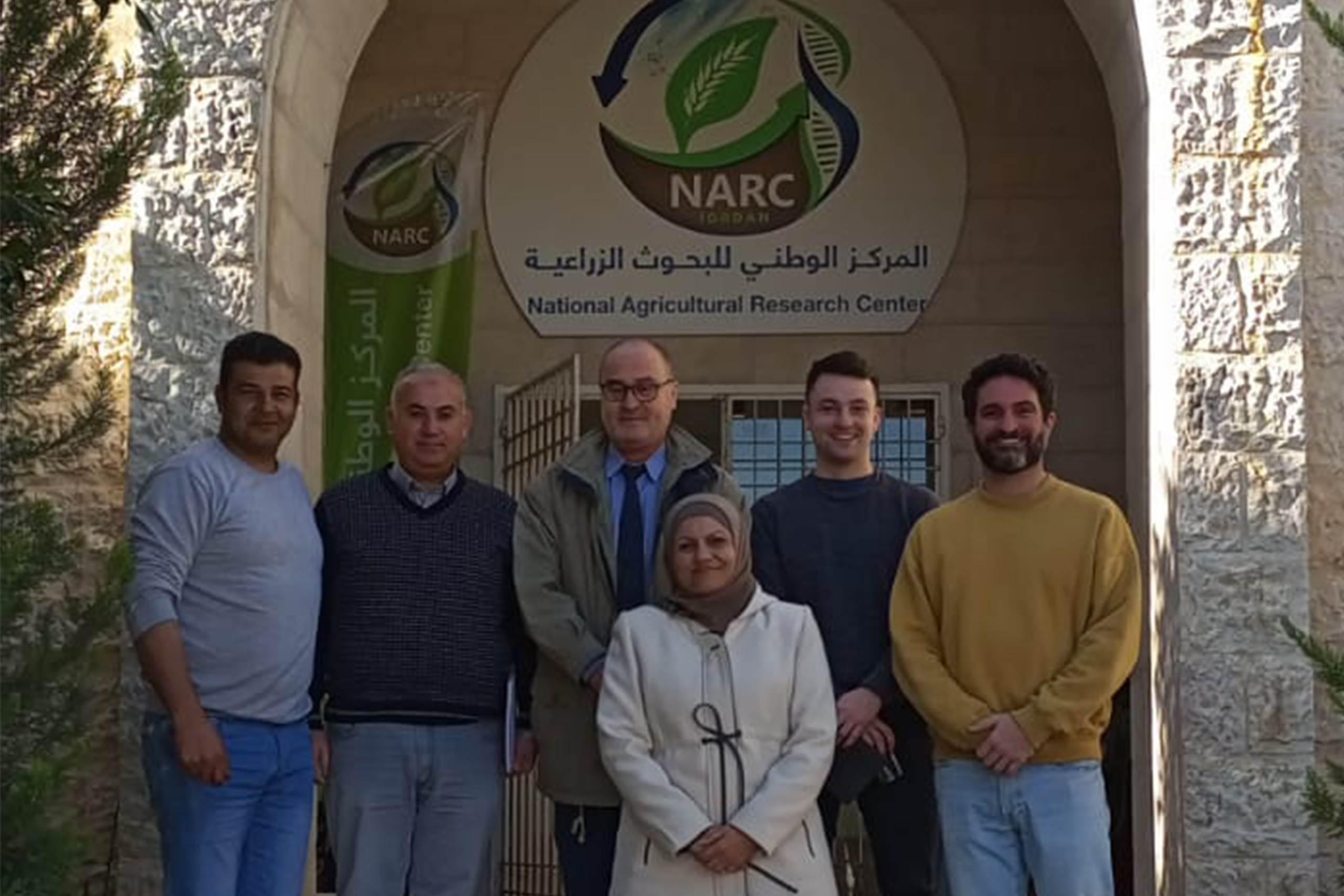
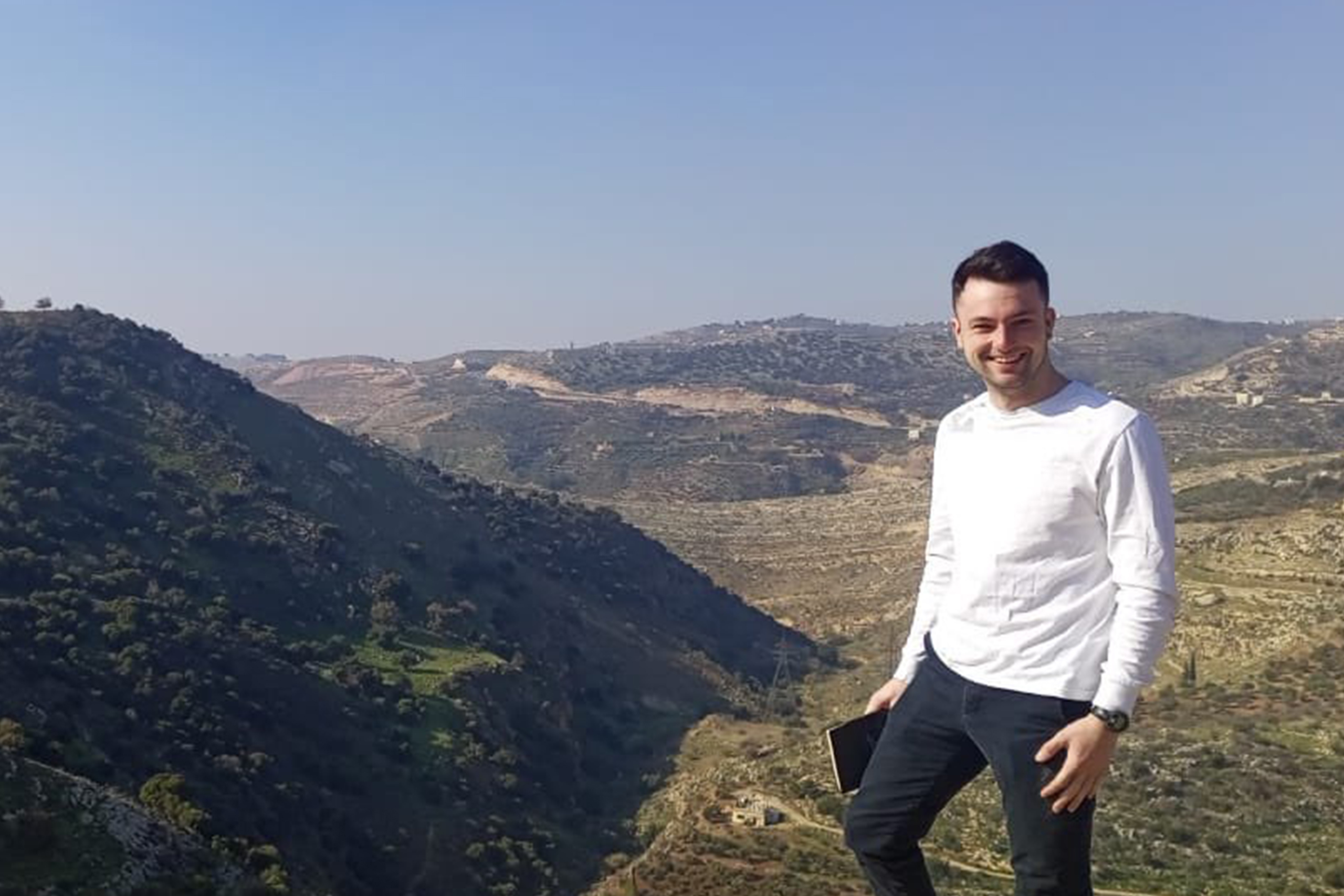
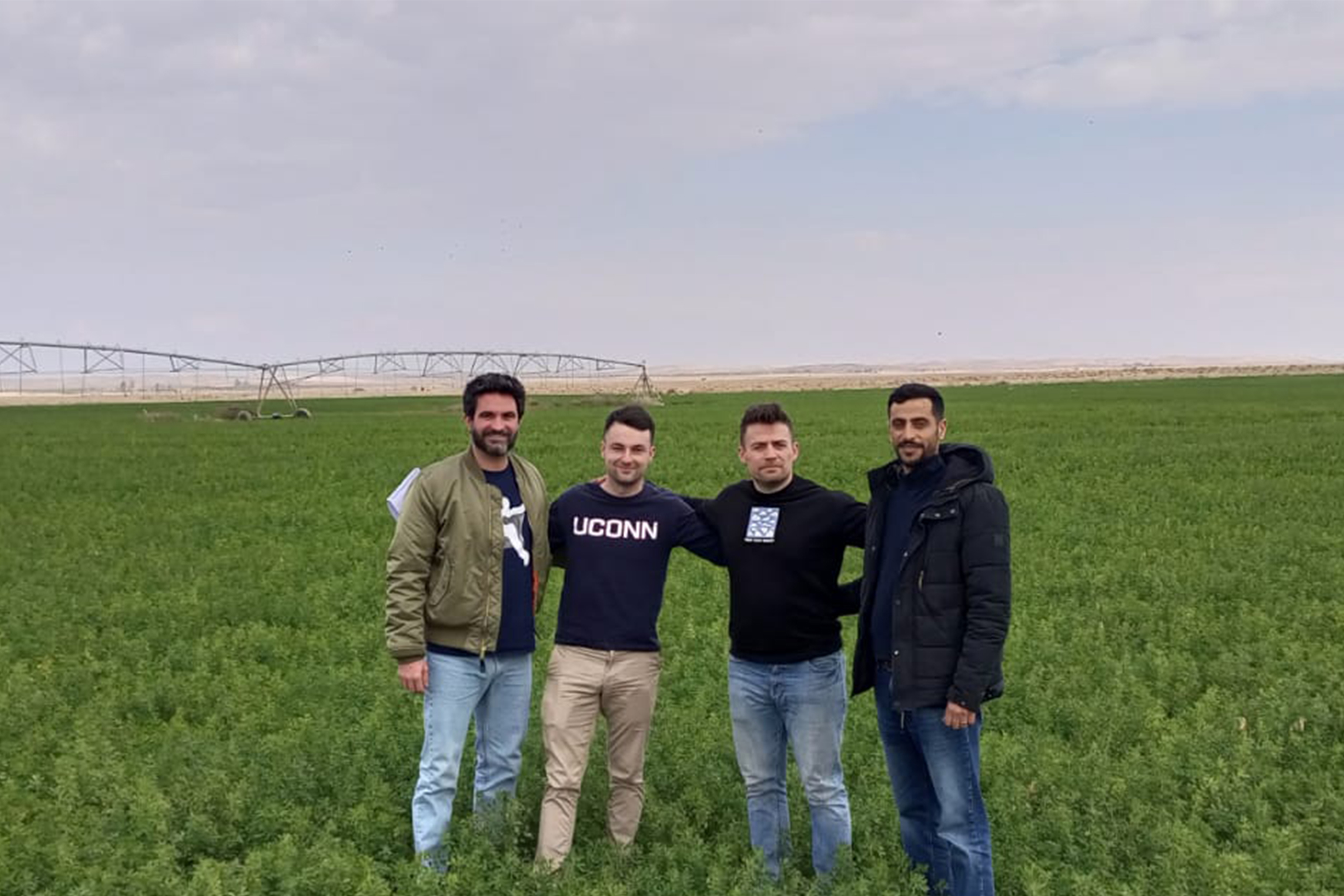
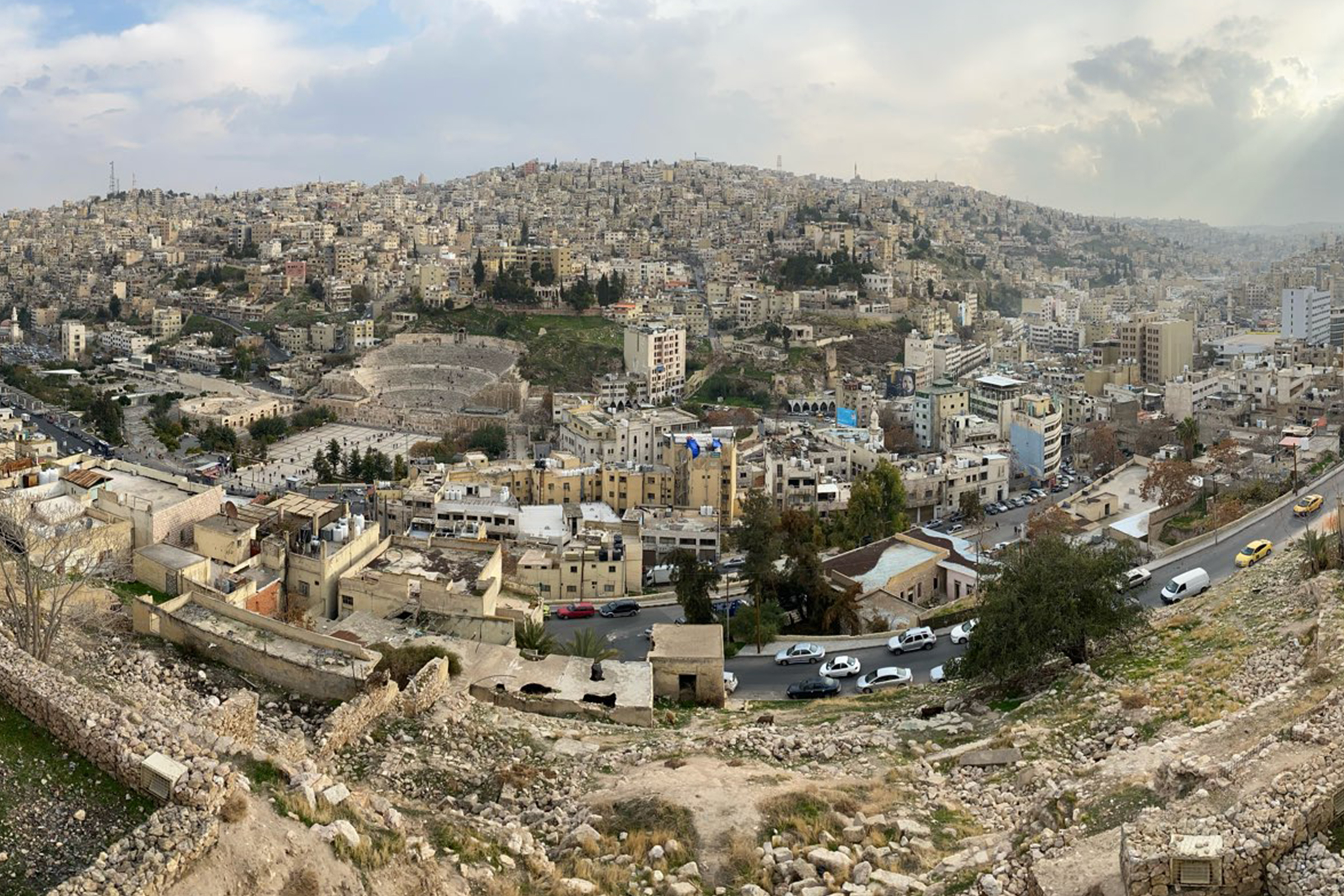
“You should come with me."
“I think Peter's story is a great example of how ‘multinational’ is no longer just a label reserved for established companies,” says Ryan Coles, an assistant professor of management and entrepreneurship in the UConn School of Business and the chief scientist at Daigle Labs, a startup research and development lab born out of a desire to use organization science research to spur tech entrepreneurship in Connecticut, and to improve the environmental sustainability and economic productivity of businesses around the world.
A sociologist, Coles has earned what he’s called a “quirky” reputation for his research-based economic development collaborations with small and medium-sized businesses both in the United States and abroad, in countries like Jordan, Palestine, Saudi Arabia, China, Israel, Mexico, Vietnam, and Nepal. His travels have given him not only a vast network within communities all over the world, but also a unique understanding of how various types of international businesses and industries operate and grow.
“In the past – and I'm talking only like 10 years ago – companies internationalized over time,” Coles explains. “They would grow in their city, their state, the country, and then eventually overseas. Now, companies are multinational from day one, and they're internationalizing in the first few years sometimes, because it's easier to and because they can.”
He adds, “In Peter’s case, he had to internationalize in order to survive, because his local market just didn't have the customer segment that he needed.”
A mutual friend introduced Goggins and Coles about two years ago, and they quickly became friends and collaborators. When Coles started Daigle Labs at UConn, Goggins joined him and soon began directing a new startup foundry concept that Coles had for the lab.
“I got this idea three years ago about us bringing management expertise to science-based startups and partnering with them on technology transfer,” Coles says. “When Daigle Labs was formed last year, Peter became the director of that program in the lab, and we were using Pisces Atlantic as an opportunity to try our hypothesis around how to build and grow science-based startups with management help.”
In looking at how to expand Pisces Atlantic through the foundry concept, what Coles and Goggins quickly realized was that, in the United States, there weren’t mid-range customers for products like commercial animal feed. His company couldn’t just jump from startup size to supplying big customers with nothing in between.
“Commodities are hard,” says Goggins, who would be competing with domestic agricultural industry giants like Cargill and Darling for those big customers. “Nobody starts a steel mill in their garage. Nobody sets up an automotive manufacturing plant at their cousin’s barn. I made the jump from my parents’ garage to having a facility. But it's really hard to get beyond the small sales, a couple hundred pounds here and there. The local hobbyist, some guy in the Mid-Atlantic, these trial sales, mixing up small custom batches and shipping them out, trying to compete on price – it's just never going to happen.”
What he needed was a middle customer, someone to take him from his current one-ton-a-month production level, not to a massive amount, like 5,000 tons, but instead to that mid-range, 45 tons or so. Still an exponential step beyond startup-level. But a manageable step – that much-needed middle ground.
And Coles had a network.
“Ryan had field research going on in Jordan,” says Goggins, “and he said, hey, I know people there. It's an emerging market, and my experience with emerging markets is that small manufacturing firms can deliver a lot of value there.
“And he was like, I bet you could sell a lot of fish food. You should come with me.”
“Welcome to the Middle East, baby."
Goggins had never been to Jordan before. He left from Providence, flew to Germany, and then on to the capital city of Amman. He’d been awake for about 30 hours when he landed – just as Jordan’s national soccer team was also arriving at the airport.
“The whole airport was mobbed by fans, and I'm exhausted – I'm just trying to find the driver,” he says. “Finally, I get in the car, and then – oh my god, it was sort of like a fever dream. We’re driving across this highway in the desert, going faster than you’d believe. Then we show up at the hotel, and there’s Ryan. He’s like ‘Welcome to the Middle East, baby. Things happen here.’”
“And it was that speed the whole time,” Coles laughs.
Over the past thirteen years, Coles’ research and economic development work has taken him to Jordan and other Middle Eastern countries countless times. As an organizational sociologist, he tries to explore all aspects of a society to understand they influence how different groups come together and organize to reach common goals.
“In a place like the Levant – so Jordan, Iraq, Syria, Palestine – the tribal system is still at the forefront of how things are done,” Coles explains, “and they still maintain agricultural businesses as a sign of their Bedouin identity.”
Over the years of working in Jordan, Coles became adopted into an Arab clan that owns one of the largest farms in the country. For him, getting Goggins a couple acres of land, or meetings with farmers, distributors, and importers in the region was as easy as a phone call.
“The way it works is that I'm family, and everything in the family is shared,” he says.
Once arriving in Jordan, Goggins met Shlash al-Oun, the head of Coles’ Arab clan, and began touring the country.
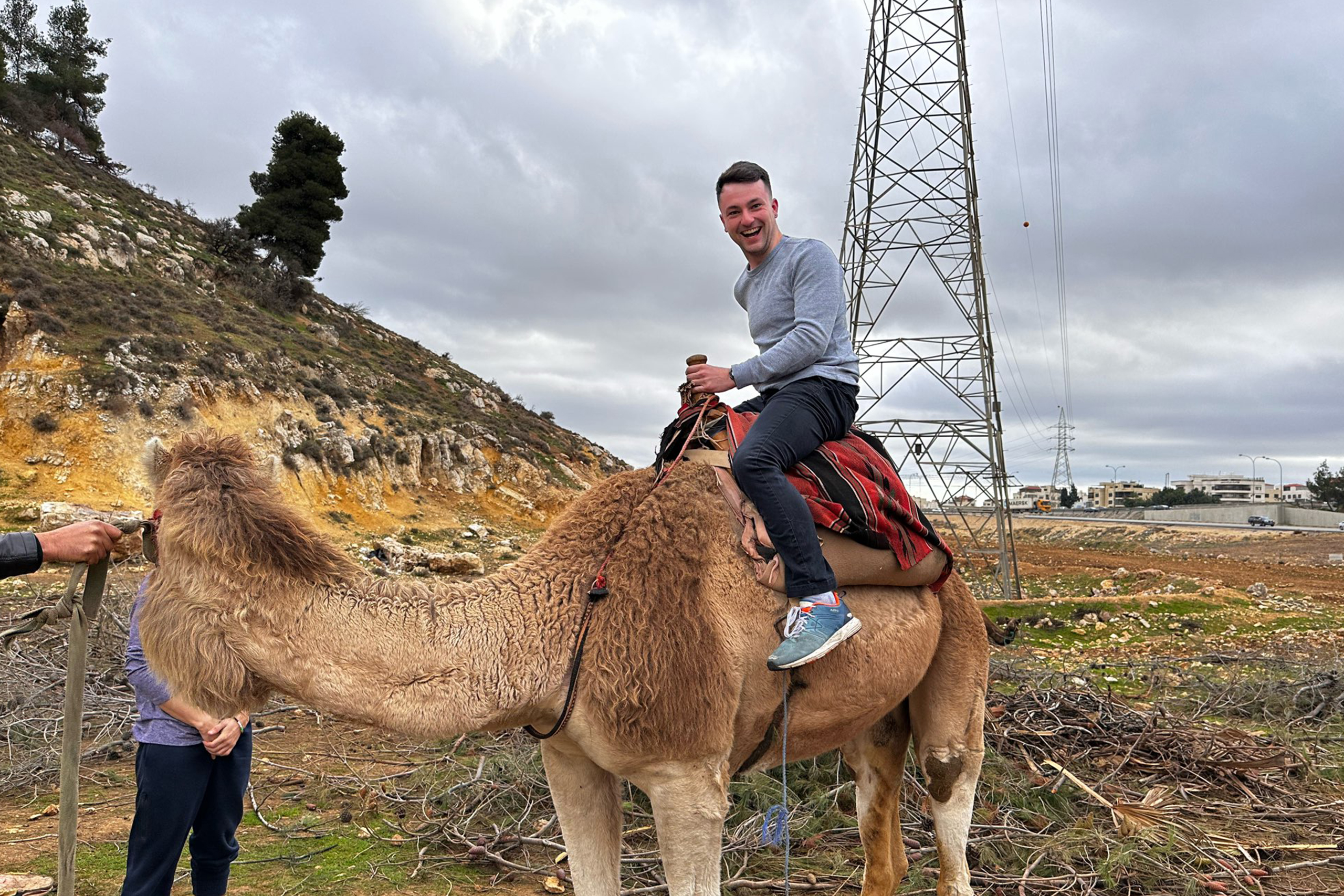
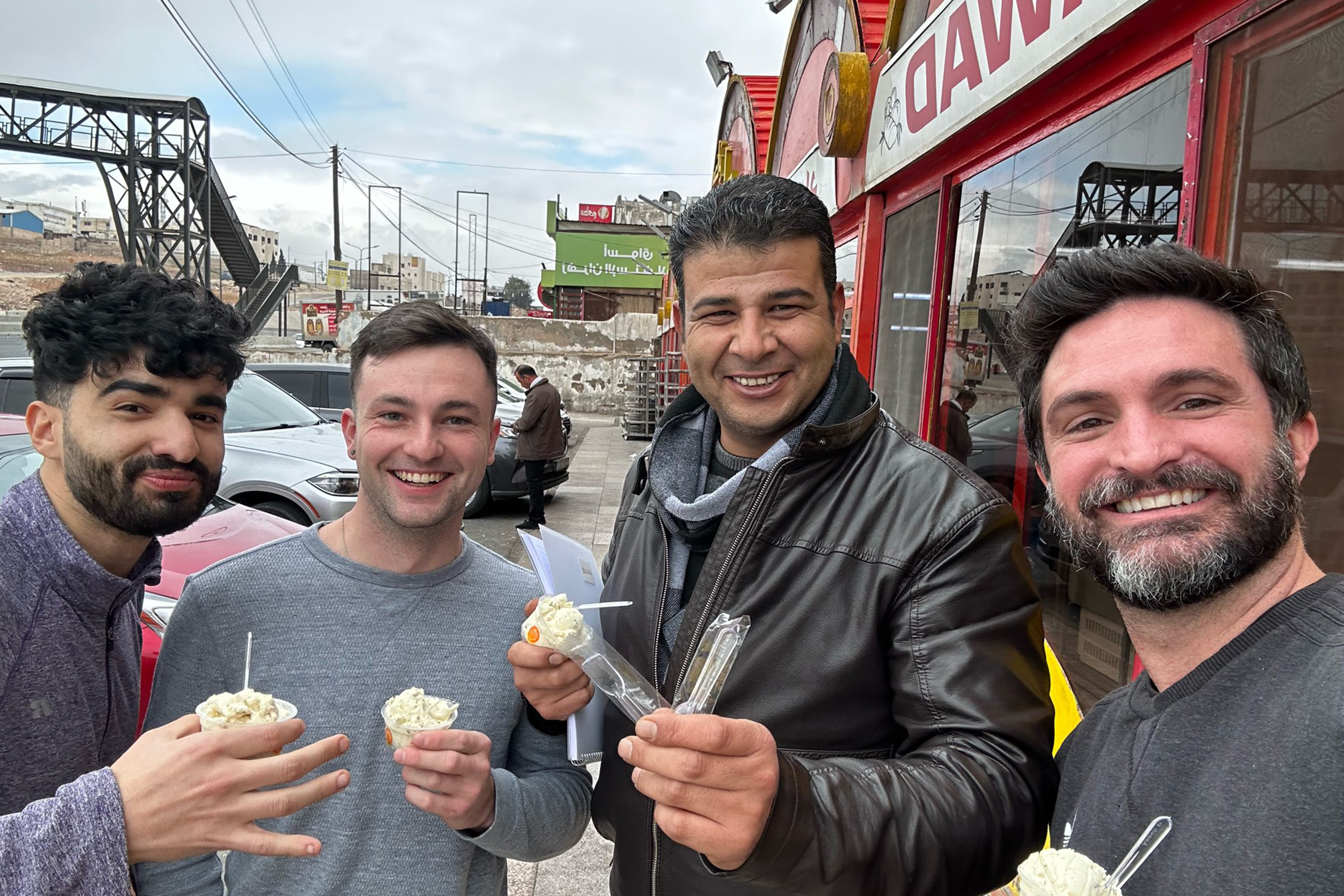
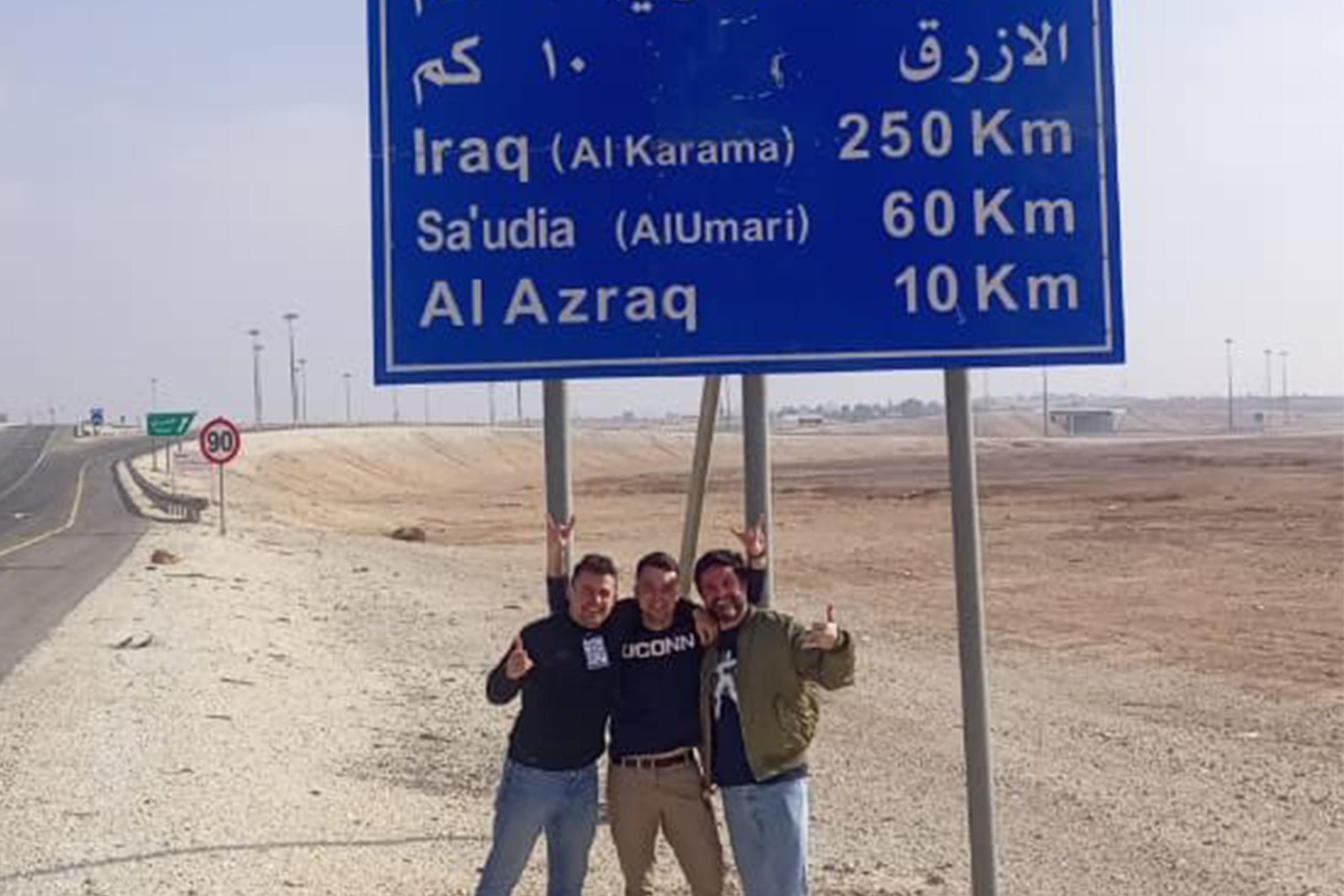
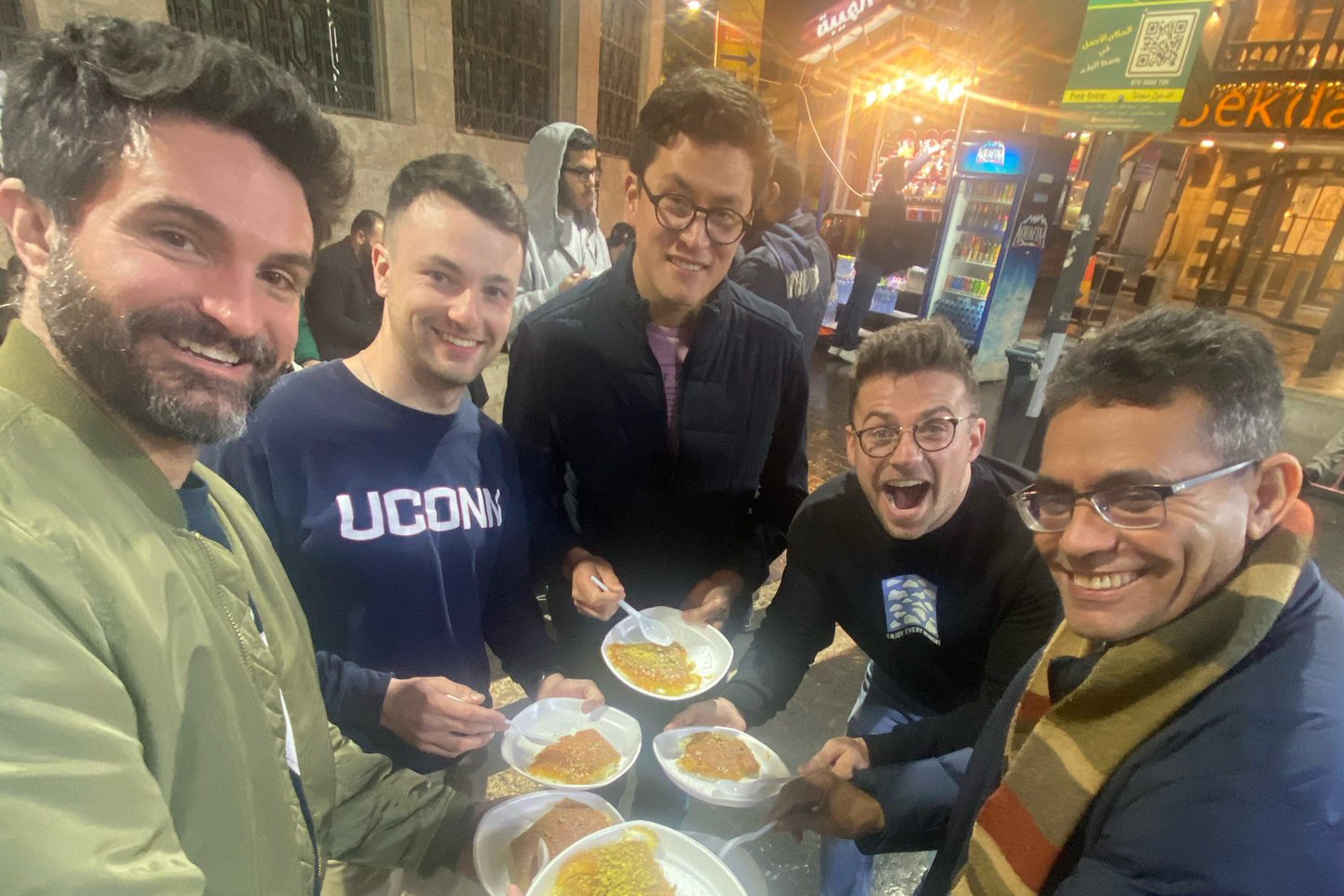
“Shlash would pick me up at 8:30 in the morning, and we’d drive around,” Goggins says. “We picked a region every day, and a theme. Today, we’re going to this region, because that’s where there’s a lot of fish farms. You go and interview the farmers. This region has a lot of industry, so you talk to people who are knowledgeable at moving things. Then, there's a port in this region.”
Fish farming is an emerging agricultural industry in Jordan. Most farms raise warm water fish – primarily tilapia, but also carp – and, according to some media reports, the country imports upwards of 40 million Jordanian dinars’ worth of fish (more than $56 million in U.S. dollars, or USD) annually to meet consumption demands. In 2022, the Jordanian government launched a United Nations’ supported project to formulate a sustainable aquaculture strategy in Jordan in order to help increase national fish production and contribute to food security in the water-scarce country.
What Goggins saw as he toured farms and warehouses was a fish feed market dominated by one company, high prices for farmers, and lower-quality feed options.
“Effectively, they're paying three to four times what an American farmer would pay here for a quality feed for a given outcome,” he says. “Even with shipping costs, and even with high commodity and fuel prices now, we can undercut that considerably and offer a higher quality product.”
Before leaving the country, Goggins had the deal he was hoping for in place.
“I export the feeds, and then Shlash’s family company, they'll handle the importation, packaging, and distribution with a profit-sharing scheme,” he says. “It's for 550 metric tons. It's worth almost half a million USD, and that's that medium gap.”
And he’s not done yet, either. Goggins and Coles are planning a second trip this spring – this time to Saudi Arabia and Egypt – where they hope to achieve similar results.
“What I love about this story, and what I've learned through my research, is that, when you strip away the finance view of them, markets are just networks,” Coles says. “Entry into new markets can go so very quickly when you can rely on 13-year-old relationships, particularly in emerging markets.”
“It's American. We know it's good.”
The other thing Coles loves about the story, he says, is that it’s a win-win – Goggins grows his Connecticut-based business in an emerging and international market, while Jordanian farmers gain access to a better product.
“It's exciting that the Daigle Labs Startup Foundry facilitated the diffusion of a product that's more environmentally friendly, that's healthier for the fish, that's cheaper for the Jordanian farmer, and that is also an innovation from Connecticut that provides a Connecticut company with more revenue and a better profit margin,” Coles says. “What’s more, we’re increasing Connecticut manufacturing and exporting. It's one of those things where the Foundry provided wins all around.”
Coles and Goggins also saw their experience as a commentary on the strength of American brands in countries like Jordan, where an American flag and “Made in America” on a product label are synonymous with quality.
“I think it's important to hear because, not just in Connecticut, but I think across America, we're kind of down on ourselves right now, in terms of the worth that we have and the types of things that we make,” Coles says. “One of the reasons why I advocate travel is that when you go abroad, you remember that, we Americans make some pretty good quality products, and people around the world recognize that.”
Goggins experienced it first-hand when they visited a fish farmer who supplies much of the country’s fish farms with fry, or baby fish, and also serves as a fish feed distributor in the country.
“We were drinking coffee, and the translator was explaining what we do,” Goggins says. “The translator said, ‘This guy’s an American, he manufactures fish feed and he’s interested in selling it.’ They talk, and the translator turns back to me and says, ‘He says he’ll buy it.’ What? Why? Why?
“I gave no specs, no data, no testimonials, no price, nothing. He turns back to me, and he goes, ‘It's American. We know it's good. We know you're going to be fair, and we're happy to buy it.’ OK. Deal.”
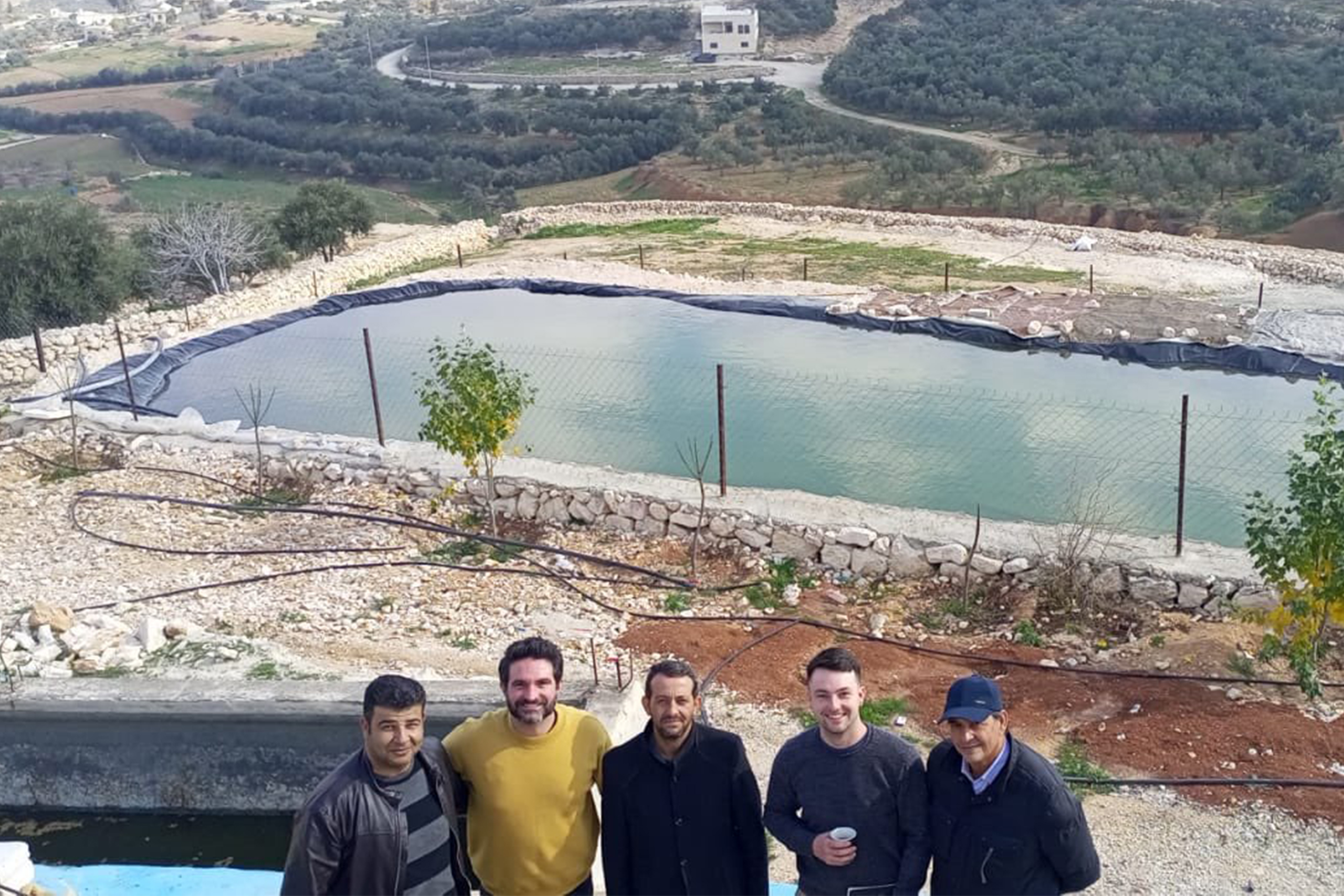
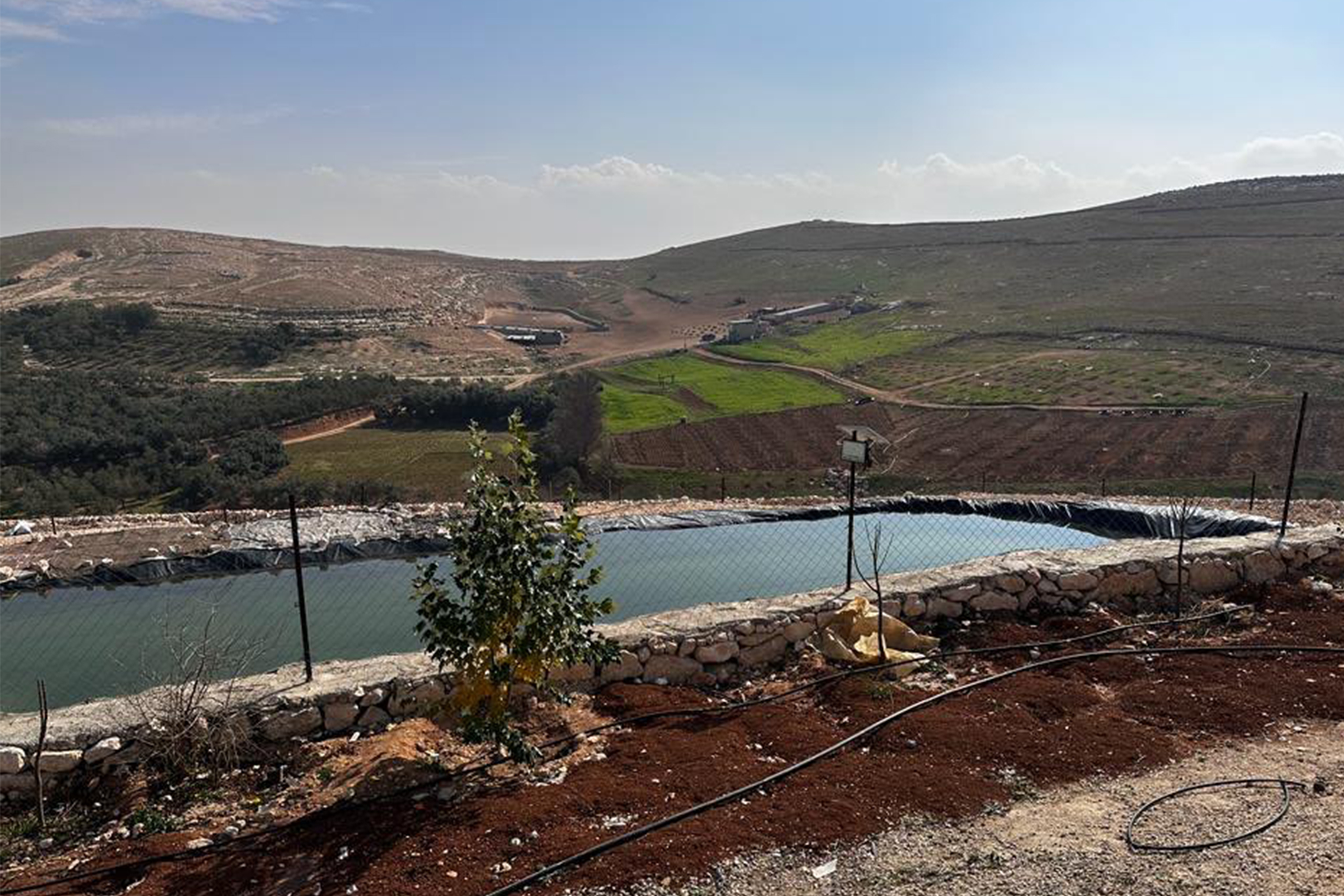
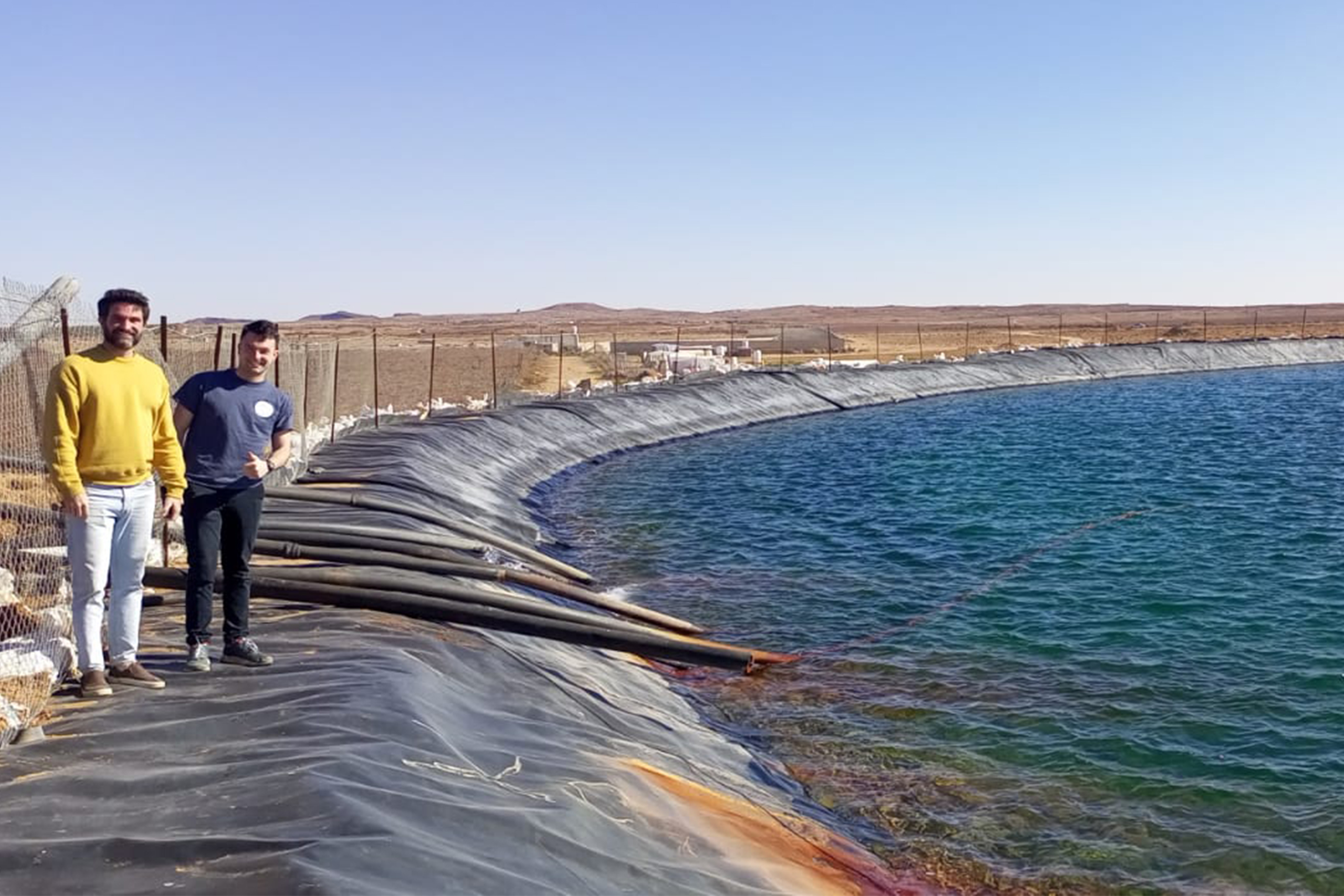
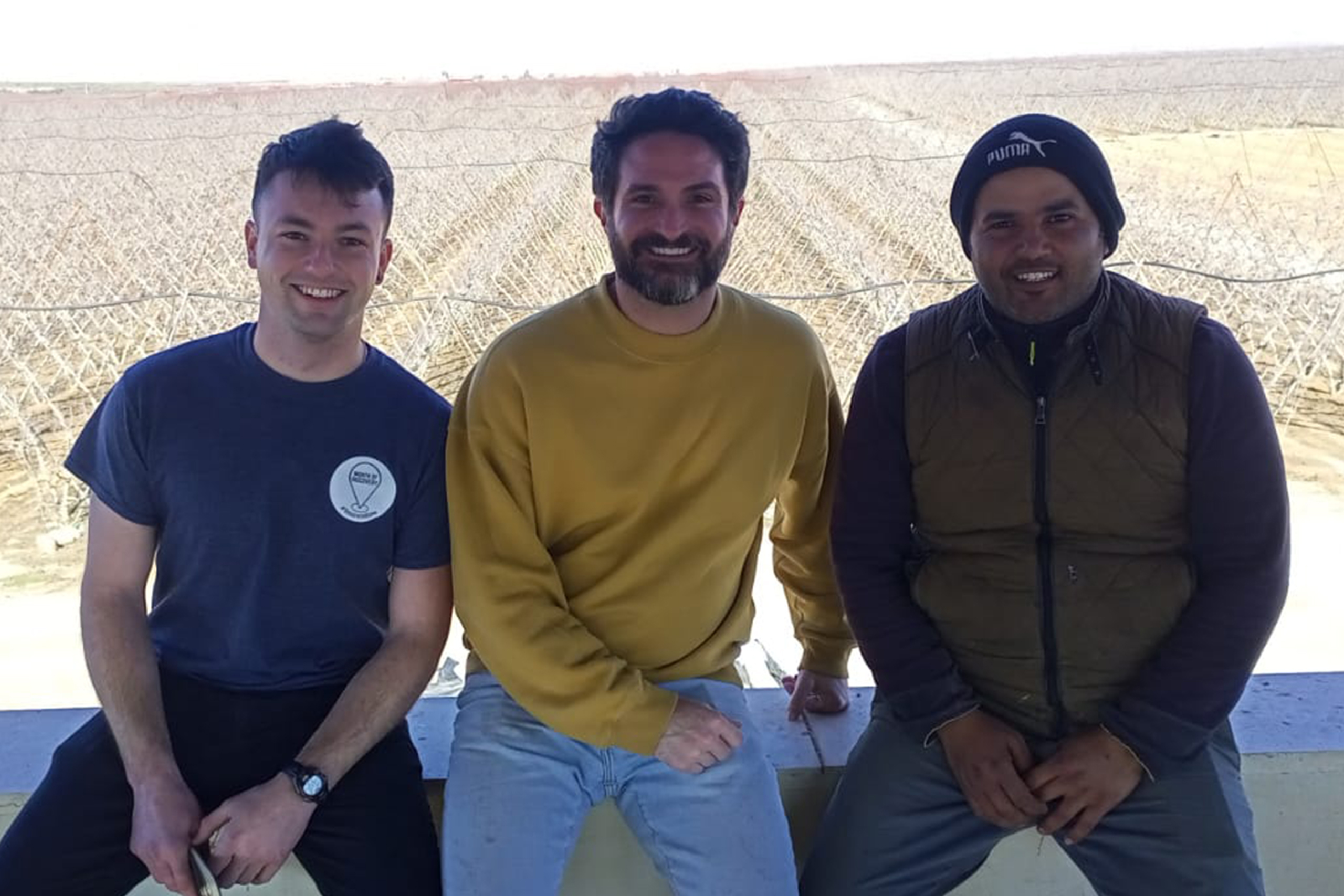
“We can do this repeatedly and effectively.”
While the trip was profitable for Goggins and his company, Pisces Atlantic, that’s not where the story ends for him, or for Coles. The mission of their new Startup Foundry is to serve as a research translation program offered by Daigle Labs – translating science and technology breakthroughs into commercial activity via startups.
“This is replicable,” says Goggins. “This isn’t a one-off. We are confident that we can also put you on a plane and try our hand again. We can do this repeatedly and effectively.”
They’re already working with six other STEM startups, providing the same kind of business coaching, funding, and other support services over a sustained period of time to help them reach a point of genuine financial viability, Goggins explains.
It’s the long-term nature of their foundry, says Coles, which makes it different from a typical incubator.
“Startups are like real human babies. They need a lot of attention and support to really hit a point of traction where they can stand on their own two feet,” he says. “The typical incubator or accelerator, with a standard training program and a fixed period of time – those aren’t bad. Those all played a critical role in getting Pisces Atlantic to where it is now, and it wouldn't be there without it.
“But you also hit that point where you need a longer runway, more specialized training and support. That’s when you need a foundry or a studio that really helps founders build from the ground up. As a foundry, we get into the trenches with the founder to help them acquire customers and suppliers, not just investors. A foundry is very small, and you work with startups for possibly years at a time, so that the startup can really breathe and get life. Peter and I saw that this was something missing – being able to not just offer a network that could provide angel investment or venture capital investment, but a network that could, in this case, provide actual buying customers and actually help with building a supply chain overseas."
Coles says he’s grateful for the support the Daigle Labs Startup Foundry has received from various institutions within UConn – including the Office of Global Affairs, the School of Business and its Boucher Management and Entrepreneurship Department, the Lieberman Program, Keith Fox and Innovation Quest, and the Peter J. Werth Institute for Entrepreneurship and Innovation.
And he says that the foundry is eager to start offering that longer runway to more founders, startups, and partners.
“For us, we're kind of putting a stake in the ground and saying, look at what we can do,” says Coles. “If you're an ag graduate student, or faculty, or somebody who has a science-based business idea, come talk to us.”
